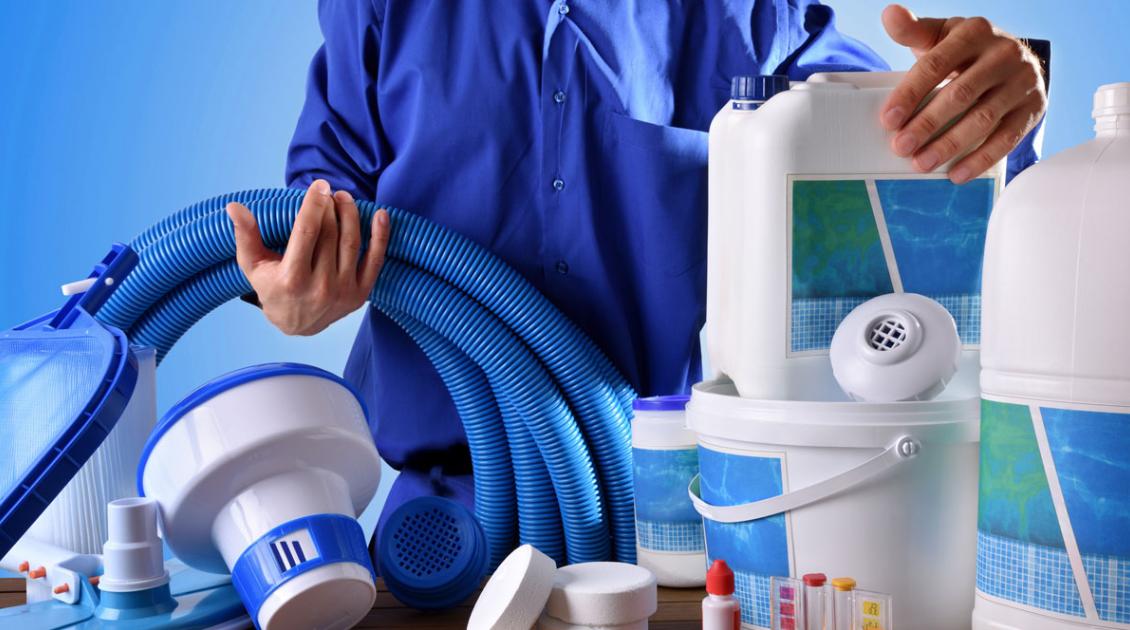
Owning a swimming pool brings endless enjoyment, but it also comes with the responsibility of regular maintenance. By understanding the basics of pool care and using the right swimming pool supplies, you can easily keep your pool clean, safe, and ready for use all season long.
This guide covers key tips on maintaining your pool’s water chemistry, cleaning, equipment upkeep, and seasonal care, ensuring a hassle-free experience.
Understanding the Basics of Pool Water Chemistry
The Importance of pH Levels and Chlorine
Maintaining the right water chemistry is vital for pool safety and comfort. pH levels directly affect the quality of your water; too high, and the water becomes cloudy and uncomfortable for swimmers, too low, and it can corrode your pool equipment. Keeping your pH balanced between 7.2 and 7.6 ensures the water stays clear and safe.
Chlorine is also essential, as it disinfects the water and kills harmful bacteria. Regularly testing and adjusting chlorine levels, ideally between 1 and 3 parts per million (ppm), ensures your pool is clean and healthy.
Alkalinity and Calcium Hardness
Total alkalinity stabilises your pH levels, preventing drastic shifts that can harm the pool or irritate the skin. Maintaining alkalinity between 80 and 120 ppm is ideal. Calcium hardness, meanwhile, prevents corrosion and scaling; keeping it between 200 and 400 ppm helps preserve the lifespan of your pool surfaces and equipment.
Cleaning and Debris Removal: Routine Tasks for a Healthy Pool
Skimming, Brushing, and Vacuuming
Skimming your pool daily to remove leaves and debris prevents clogs and helps keep your pool water clear. Brushing the walls and floor of your pool regularly prevents algae buildup, while vacuuming removes dirt and debris from hard-to-reach areas. A few minutes a day can save you hours of deep cleaning later on.
The Role of Pool Filters in Maintaining Clean Water
Your pool filter is the unsung hero of pool maintenance, working constantly to remove dirt and debris. Whether you have a sand, cartridge, or diatomaceous earth (DE) filter, cleaning or replacing it regularly ensures it functions properly. A clean filter not only keeps your pool sparkling but also extends the life of your pump.
Pool Equipment Maintenance: Pumps, Heaters, and More
Taking Care of Your Pool Pump
The pump is crucial for circulating water and ensuring chemicals are evenly distributed. Clean out the strainer basket regularly and inspect the pump for any signs of wear or leaks. Keeping your pump well-maintained ensures proper water flow and can help prevent costly repairs.
Maintaining Pool Heaters
If you use a heater for your pool, it’s important to maintain it for efficiency. Regularly clean the heater’s filter and inspect for any blockages. For gas heaters, ensure the burner is free of debris, while electric heaters should have their heating elements checked to avoid overheating.
Seasonal Pool Maintenance Tips
Preparing Your Pool for Winter
Winterizing your pool protects it from freezing temperatures and ensures a smooth reopening in spring. Lower the water level, clean the pool thoroughly, and cover it securely. Don’t forget to store your equipment properly to avoid damage.
Getting Your Pool Ready for Summer
When reopening your pool after winter, start by removing any debris from the cover and checking for damage. Test and balance the water chemistry, inspect your equipment, and give the pool a deep clean before the swimming season begins.
Essential Tools and Swimming Pool Supplies You’ll Need
To keep your pool in great shape, having the right swimming pool supplies is a must. Pool nets, vacuums, and brushes make cleaning easier, while essential chemicals like chlorine, pH balancers, and shock treatments keep the water safe and clean. Regularly testing the water with a reliable kit ensures you’re always in control of your pool’s health.